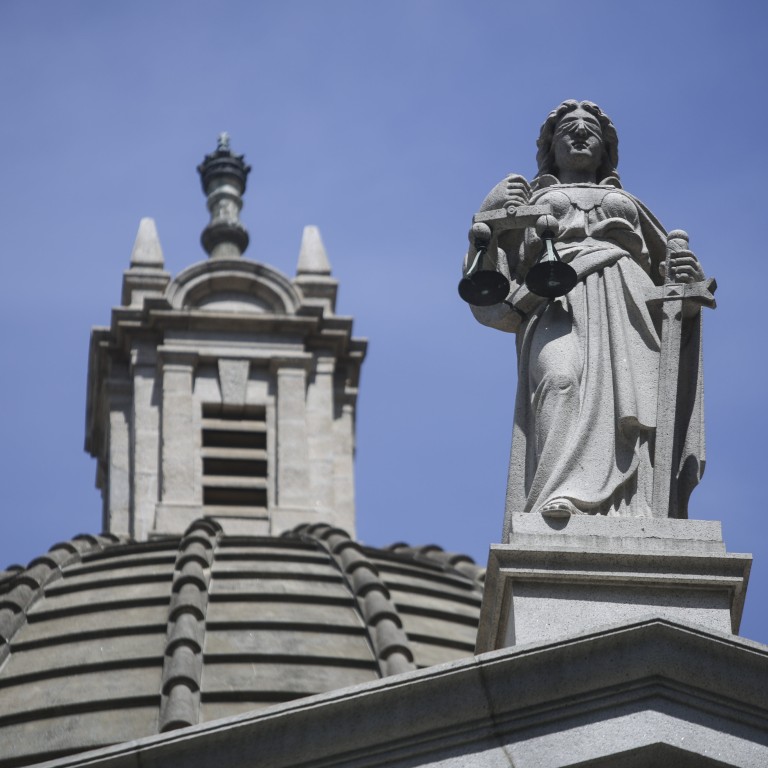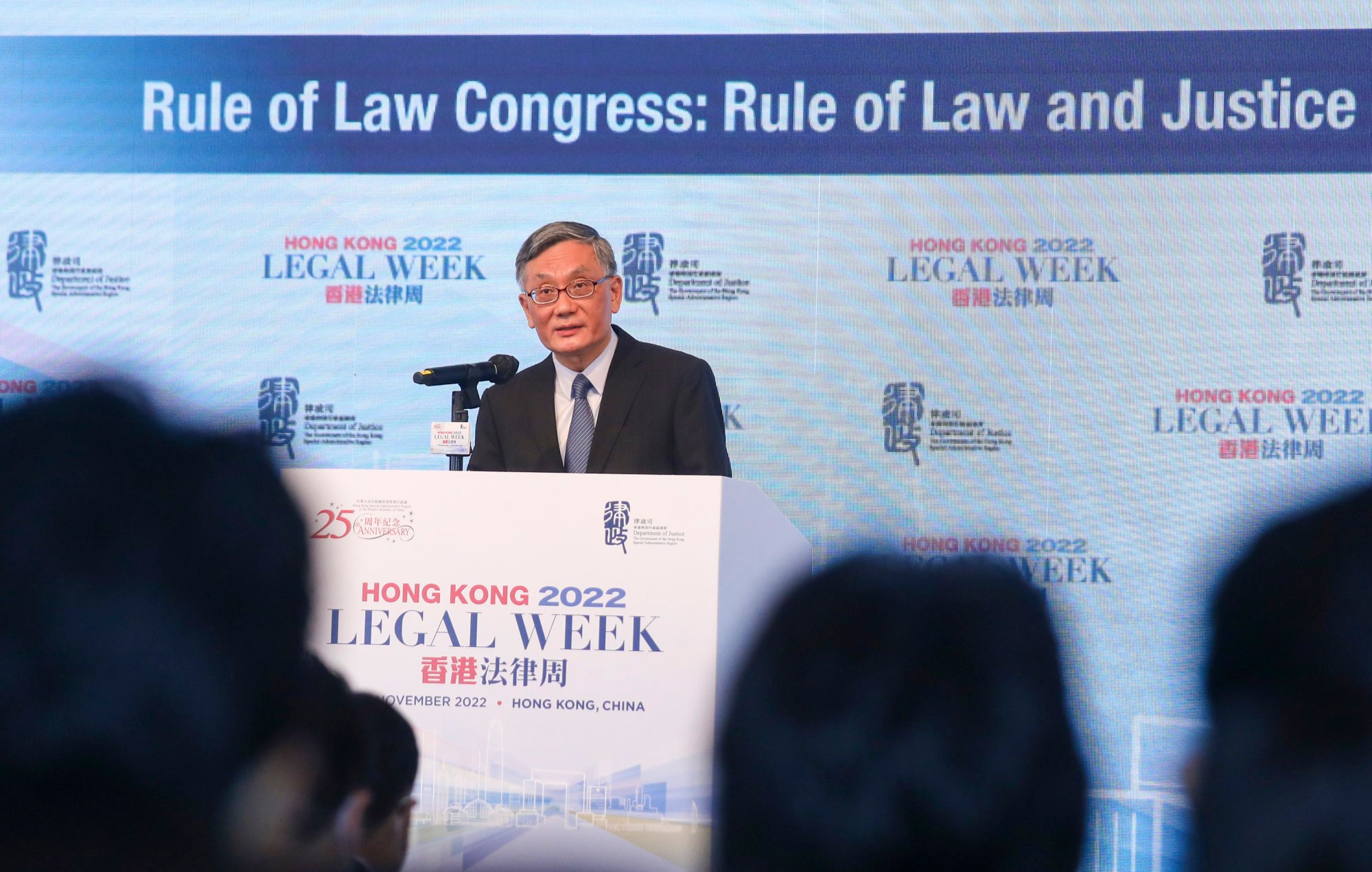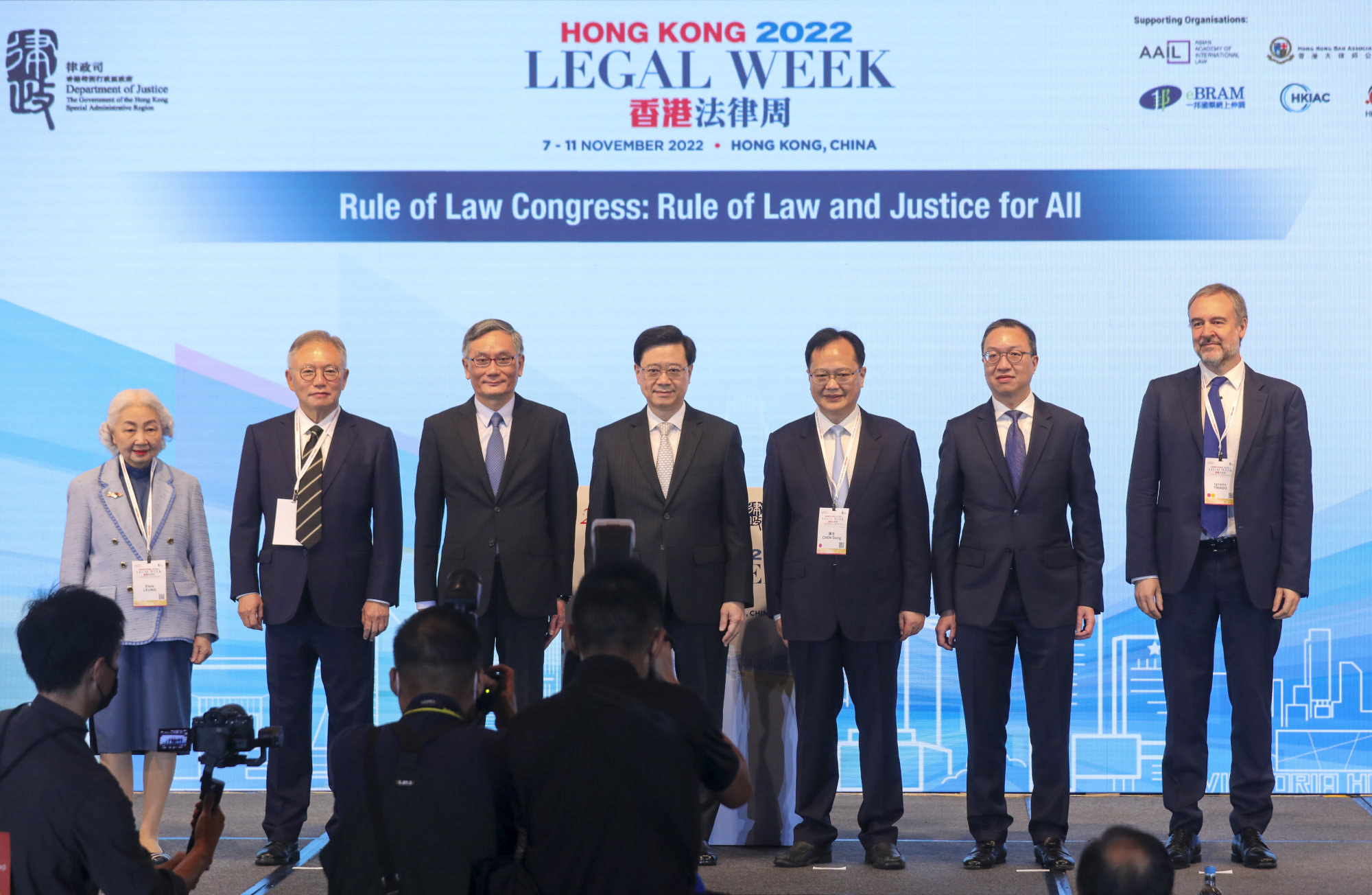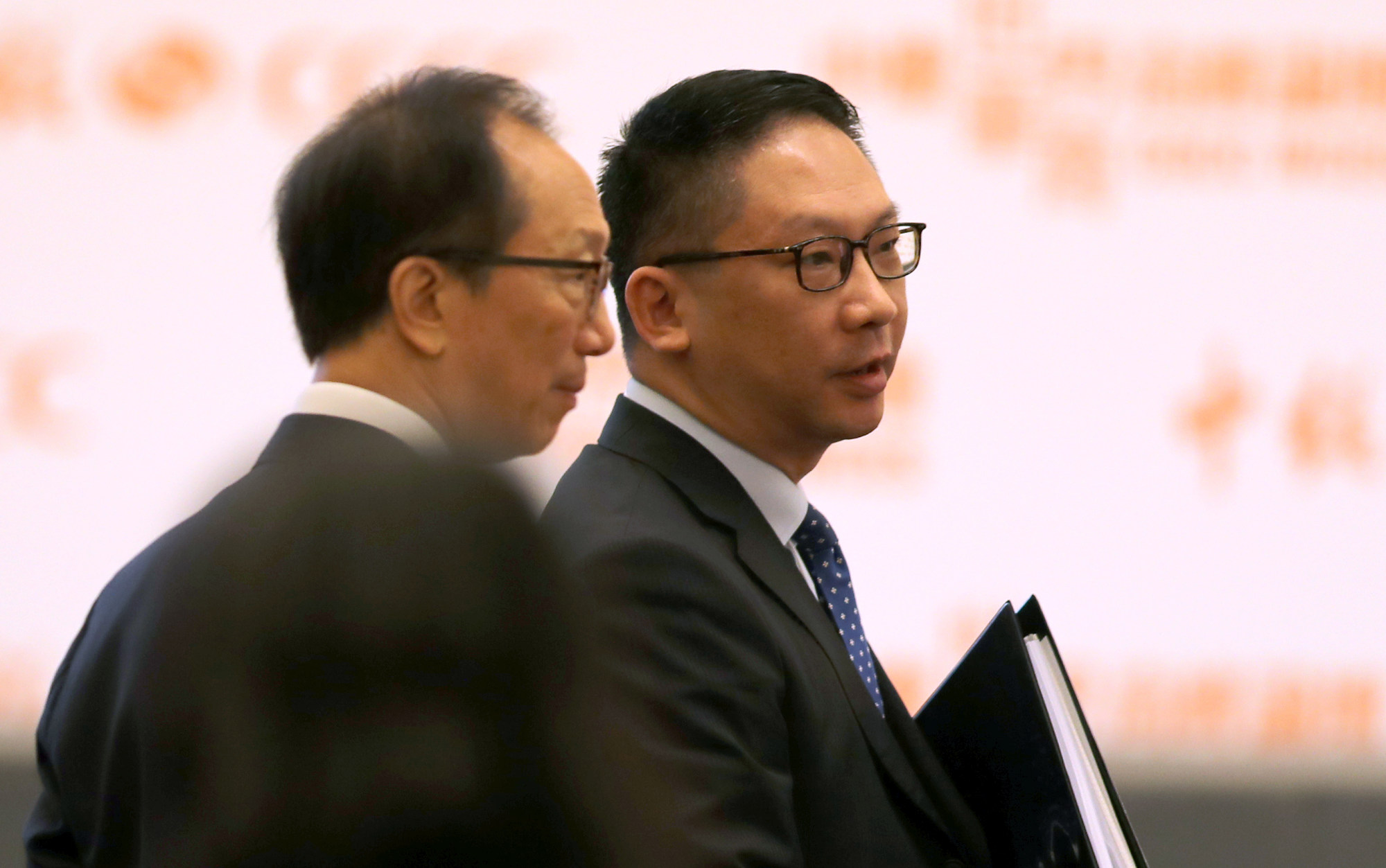
Hong Kong must strive to educate, engage young people on rule of law and dangers of ‘mob rule’, city’s top judge says at Legal Week forum
- Chief Justice Andrew Cheung says rule of law often subject to interpretations, but matters can easily get out of hand through misinformation
- City leader John Lee also stresses importance for society to safeguard national interests, capping off week-long annual legal gathering
Hong Kong should strive to educate and engage young people about the rule of law and let them understand why it is superior to the “rule of man or mob rule”, the city’s top judge has said at a week-long flagship forum.
Chief Justice Andrew Cheung Kui-nung underscored the responsibilities of authorities at Legal Week 2022 on Friday, the last day of the event, as city leader John Lee Ka-Chiu called on society to safeguard national sovereignty and interests.
Cheung stressed the importance of ramping up education in schools, calling them “a microcosm of society”. “As such, they are the perfect environment in which young people ought to be engaged in thinking about the rule of law, its purpose and benefits, and why the rule of law is superior to, say, the rule of man, mob rule or rule by law,” he said.

The city is still dealing with the aftermath of the social unrest from the 2019 anti-government protests, during which thousands of young people were arrested for various offences, from rioting to vandalism.
The government has mostly blamed misplaced grievances and online incitements for the chaos that year, though Western governments have accused the city of clamping down on freedoms.
On Friday, Cheung acknowledged that the rule of law often came under various interpretations, but warned that matters could easily get out of hand in the current day and age.
Justice secretary brushes off body’s lower rule of law ranking for Hong Kong
“In this information technology-driven era, bias and misinformation are just as easily spread, if not more easily spread, than information,” he said.
While stressing that the city’s courts have given “generous interpretation” on issues related to rights, he urged the public to keep a sense of “fair-mindedness” and “a culture of lawfulness”.
“These are values that we must now work hard to impart to the next generations to ensure they too will safeguard the rule of law and enjoy the benefits of a fair and peaceful society,” the chief justice said.
Hong Kong chief justice defends time taken to put 47 activists on trial
Separately, Chief Executive Lee told the five-day legal forum that in light of increasingly complex geopolitics, he expected countries would pay more attention to national security on their own soil. “Our country is no exception,” he pointed out.
The forum is an annual event organised by the Department of Justice since 2019. This year, the event has been used mostly as a launch pad to promote Hong Kong legal services to the outside world after nearly three years of tough travel curbs amid the Covid-19 pandemic.
The latest forum followed other mega events last week, including the Global Financial Leaders’ Investment Summit and the Rugby Sevens, with the focus shifting from legal services to the rule of law.
Hong Kong’s chief justice condemns recent threats against judges
Lee said as an integral part of China, it was “only natural” that Hong Kong should safeguard national security, calling the need to uphold national sovereignty and interests the “top principle” of “one country, two systems”, Beijing’s governing model for the city.
He also vowed to ramp up efforts to tell the outside world “the actual story about Hong Kong’s rule of law” to counter what he described as “inaccurate information” circulated by “certain media outlets and social media platforms”.
Secretary for Justice Paul Lam Ting-kwok on Friday also called the event “a starting point” to reconnect Hong Kong’s legal sector with the rest of the world.

He also revealed that Hong Kong would host the headquarters of the International Organisation for Mediation once details on Beijing’s new initiative were settled.
Last week, the central government announced it would set up a preparatory office in Hong Kong to connect “like-minded” countries through a dispute-resolution body focused on mediating matters among member states.
Speaking at a separate session, former secretary for justice Rimsky Yuen Kwok-keung threw his weight behind an arrangement that allowed foreign judges to sit in the city’s courts.
Some of the city’s pro-establishment figures have previously voiced their opposition to the practice, accusing foreign judges of lacking an understanding of both Hong Kong and mainland China’s laws.

But Yuen argued that the arrangement was included in the Basic Law, the city’s mini-constitution, “for good reasons”. He also pointed out that Singapore’s International Commercial Court had also invited foreign judges to hear cases.
“The participation of overseas judges in our court of final appeal has been voted positively by the international business community,” he said.
“It also helps to ensure the continuous presence of international expertise of the highest caliber as well as the facilitation of cross fertilisation and the development of Hong Kong’s common law.”
Earlier this year, Britain’s Supreme Court withdrew its last two serving judges from the city’s top court, citing concerns over the Beijing-imposed national security law.
Additional reporting by Jeffie Lam

